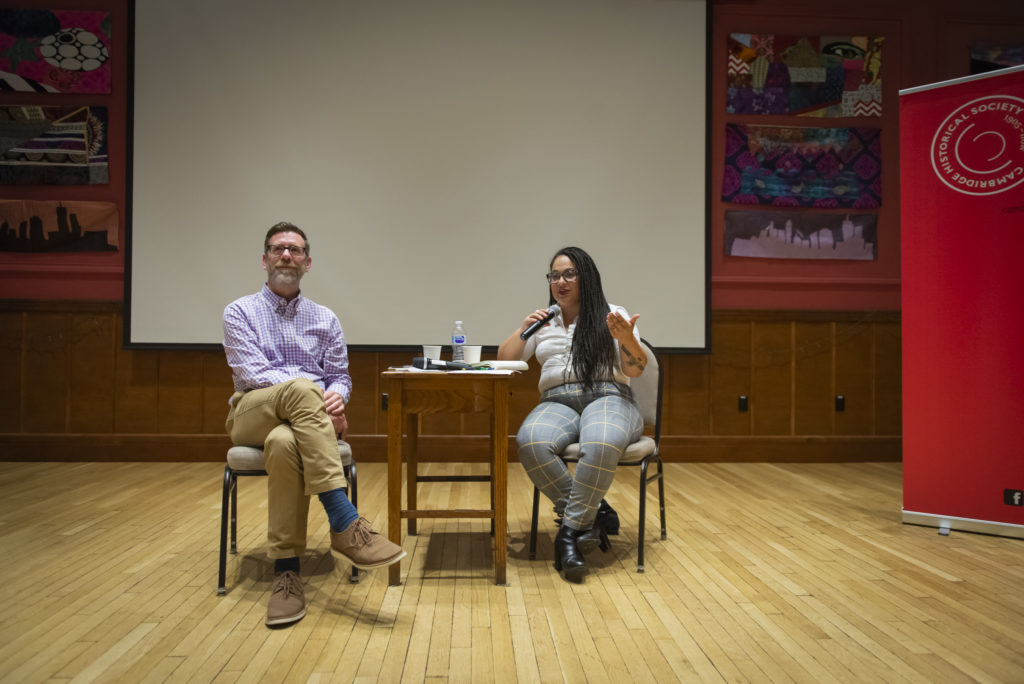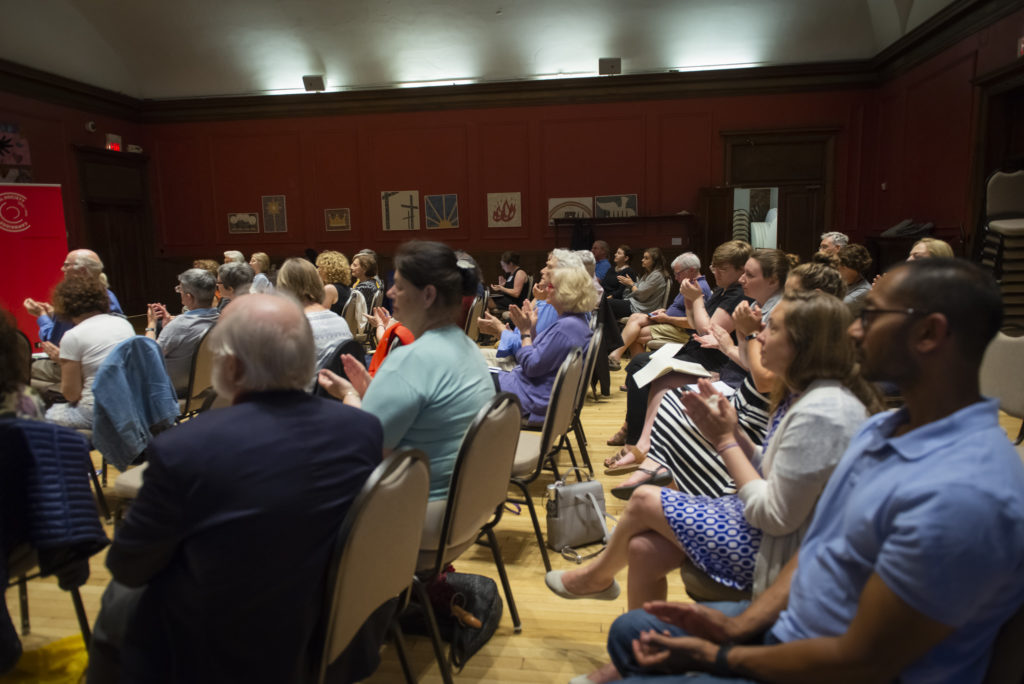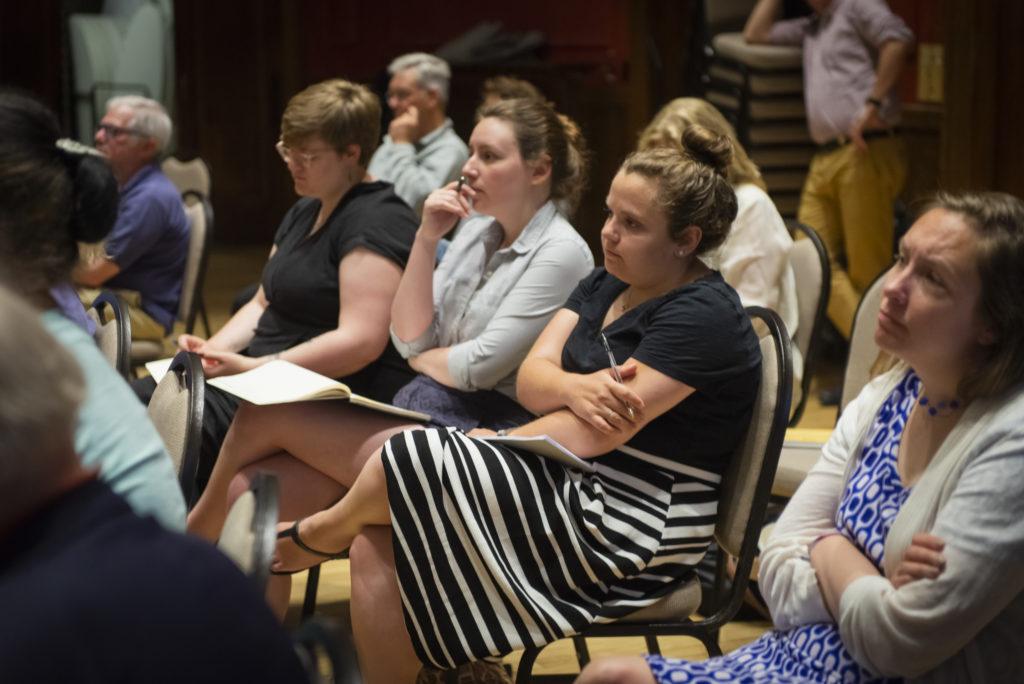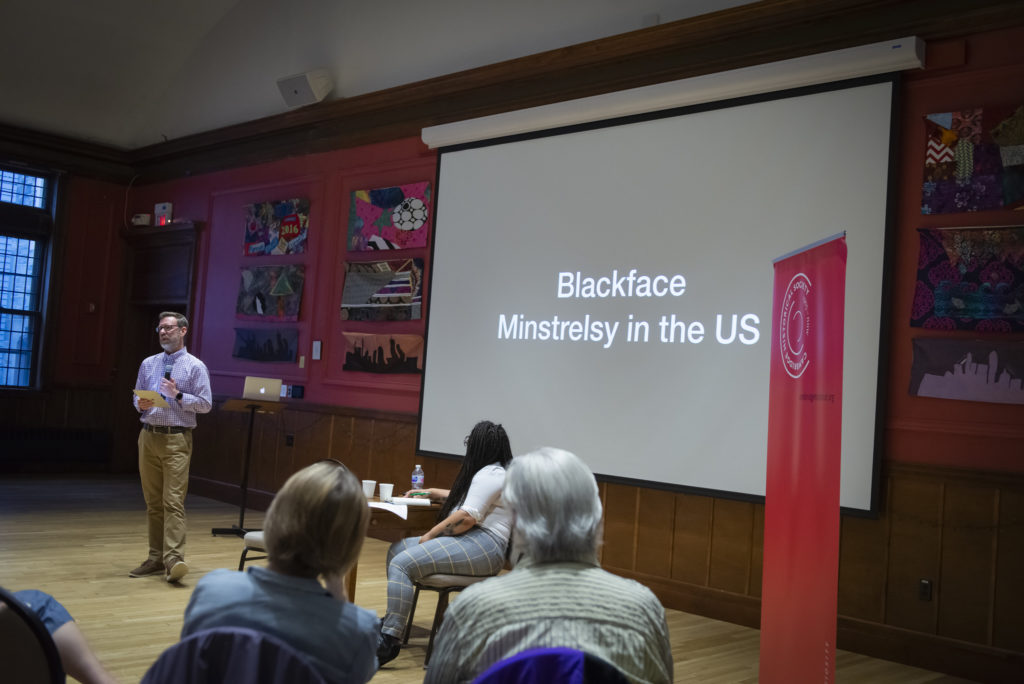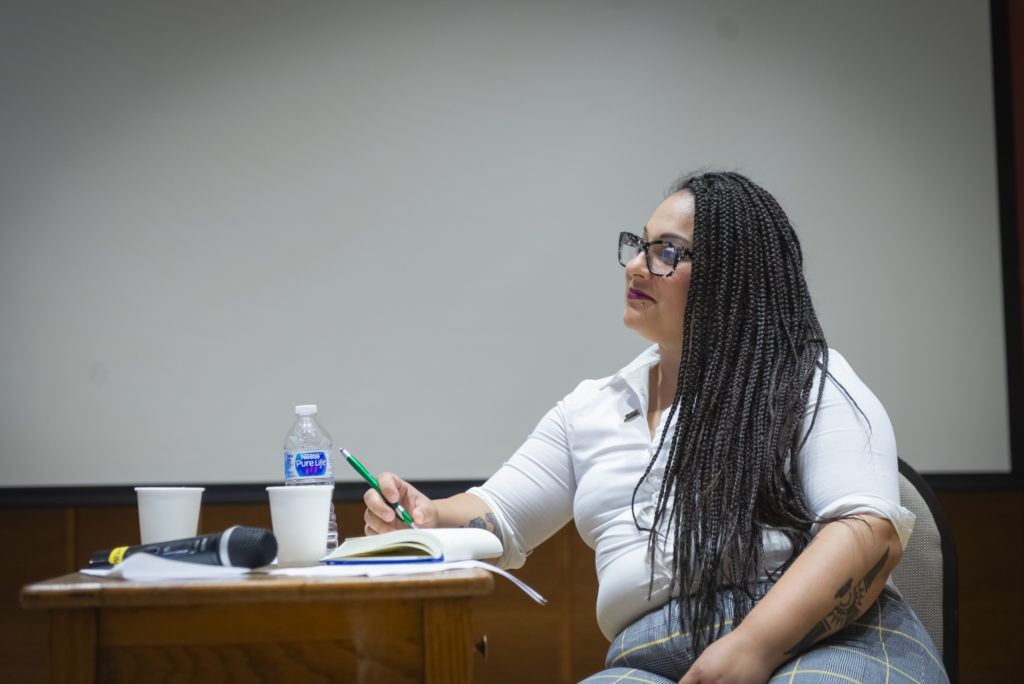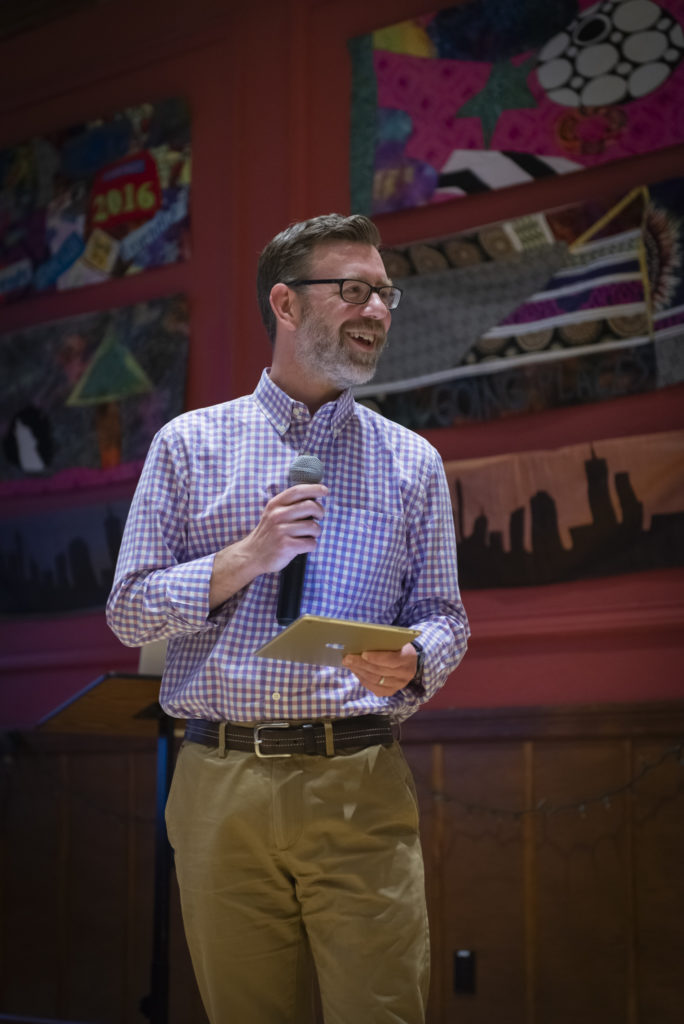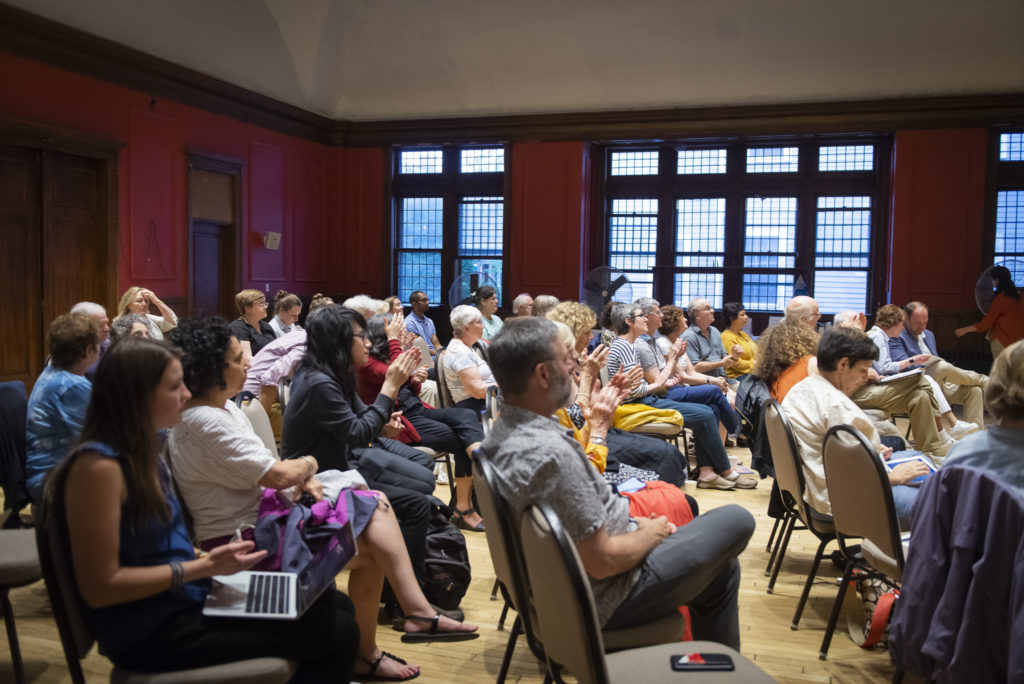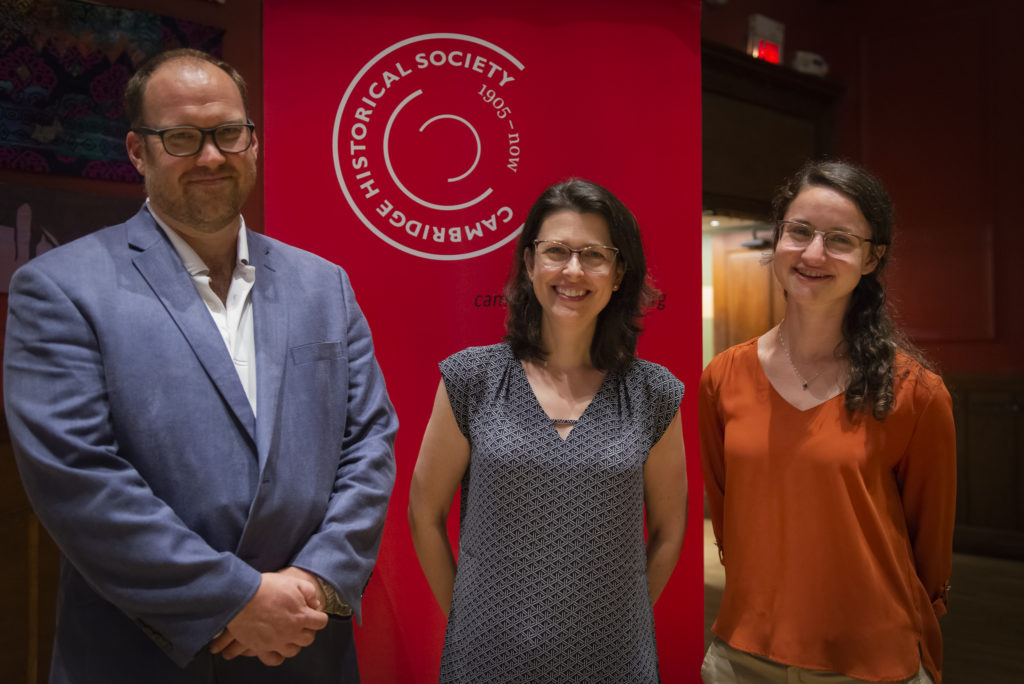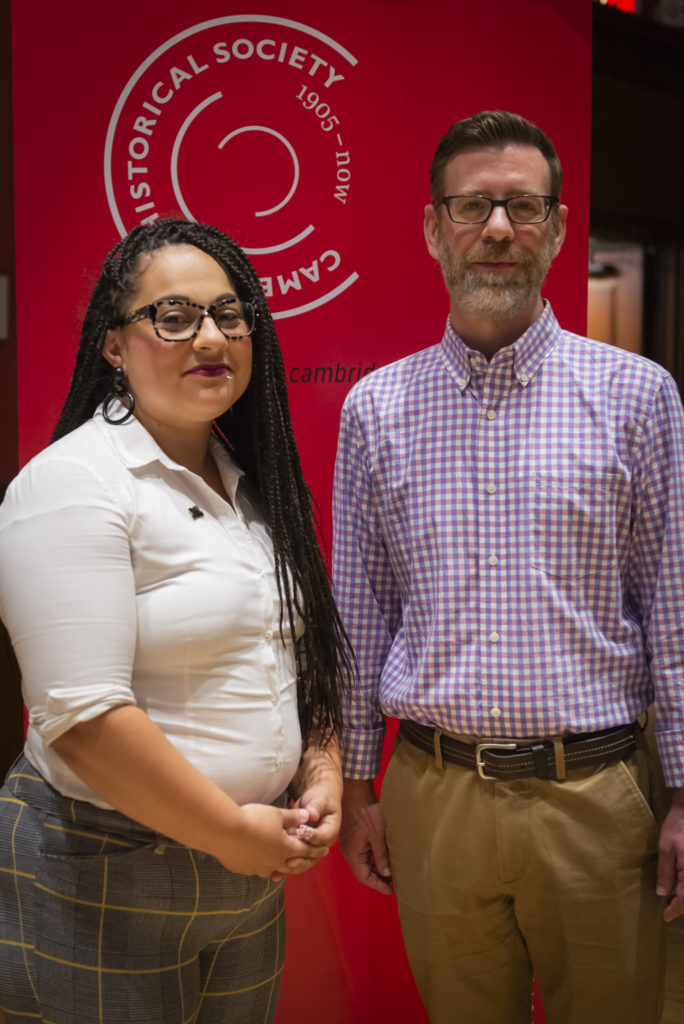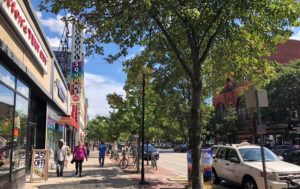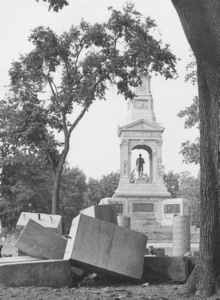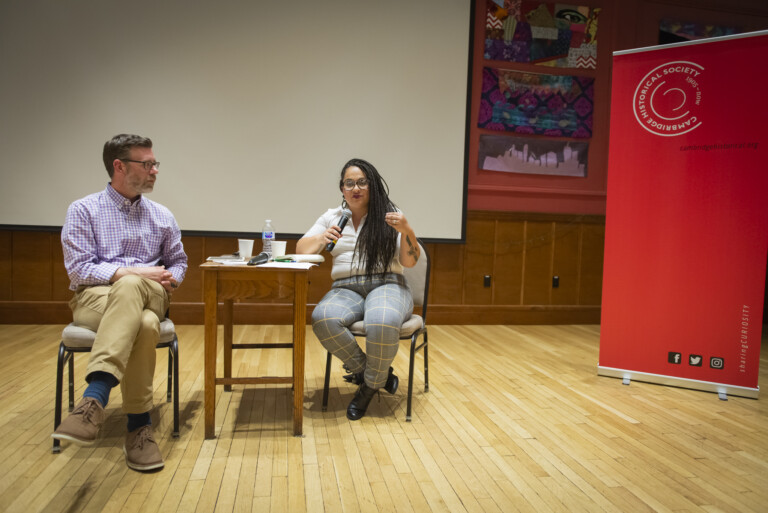
Recap of 6/25/19 History Cafe 2: Engaging with “Difficult Histories” Workshop
Fri April 4, 2025
Thank you to all who joined us at the First Church of Cambridge for the June 25th History Café: Engaging with “Difficult Histories” Workshop. The Café was led by two historians, Dr. Stephen Berrey, University of Michigan, and Dr. Tatiana Cruz, Lesley University, who guided us through a facilitated conversation based on their research and scholarship. Dr. Berrey’s academic research and writings explore race and culture in 20th century U.S, and Dr. Cruz is a historian of race and gender in modern U.S. with an emphasis on African American and Latinx history and social movements. Together, they engaged the audience in thinking about how we can effectively grapple with histories deemed “hard” and “difficult” to acknowledge.
Reverend Dan Smith of First Church of Cambridge began by welcoming us into the space. He described the congregation’s exploration of “Remembrance and Reparation” as it relates to the church’s history of slavery.
Cambridge Historical Society Program Manager Perri Meldon then laid the ground rules for respectful and thoughtful conversation. She stressed the importance of active listening, genuine curiosity, thinking and speaking with empathy, specificity and avoiding assumptions.*
Before presenting his research on “Blackface Minstrelsy in the U.S.,” Berry alerted the audience to the fact that what they were about to discuss might be upsetting for some. He then described how individuals and groups in northern regions of the U.S.—including Boston and Cambridge—participated in racist depictions of black communities and individuals throughout the 19th and early 20th centuries. He gave examples of high school songbooks and church-sponsored events that portrayed people in blackface in Cambridge as recently as 1969. This history provided context to the recent appearance of college yearbooks in the media that showed Virginia Governor Ralph Northam and other prominent figures dressed up in blackface.
Following Berrey’s presentation, Cruz asked a series of thought-provoking questions: Why has blackface persisted? How can we effectively teach about histories of slavery and Jim Crow? What is the role of white people in discussing these histories, and how does being white inform how people can understand these histories? Berrey and Cruz emphasized the importance of listening and recognizing how one’s identity affects a room, providing concrete details and nuanced scholarship on these histories, and offering content or trigger warnings where necessary.
The audience asked questions and commented on understanding the roles of white fragility and white supremacy in these conversations, the role of gender in these histories, and how the historiography has shifted on racism and “othering” since the 1960s and 1970s.
Following Q&A, Meldon distributed index cards and asked the audience to reflect on and write down answers to the question, “What histories do you believe Cantabrigians will consider “difficult” in the future?” Several people wrote “climate change” and “income inequality and poverty.” Other answers included:
- The ways in which local people and institutions benefited from slave labor.
- Why and how Boston and Cambridge remained–and even in some cases–became more segregated over time than it was in the late 1950s and 1960s, not only in housing, but in education, social life, artistic life, economic opportunity, etc.
- How we individually and collectively are contributing to the demise of the planet (e.g., driving cars, using aerosol spray cans, using plastic water bottles, etc.).
These answers—and those from all of our events this year—will be archived at the Cambridge Historical Society, making it possible for future researchers to understand how people in Cambridge felt about these issues in 2019.
We thank the attendees for their openness, consideration for their fellow audience members, and willingness to grapple with unsettling and uncomfortable topics. We are grateful for Dr. Berrey and Dr. Cruz’s guidance through this conversation, and the First Church of Cambridge for hosting us.
If you are interested in learning more about educating “hard” and “difficult” histories for the public, visit the website “Teaching Hard History,” or check out the book Interpreting Difficult History at Museums and Historic Sites by Julia Rose (2016).
* Cambridge Historical Society Ground Rules for Respectful Conversation:
- Active listening. Pause and repeat back in your head what you heard before speaking or raising your hand. Don’t just hear, absorb.
- Ask questions based on genuine curiosity.
- Think and speak with empathy. Be like a historian, that is, understand that the life circumstances around is what led them to a decision. Think about these conditions before passing judgment.
- Be specific. Describe concrete details and your own experience, and avoid ideas that mean something different to everyone. Try to avoid clichés, assumptions, and stereotypes.
Photos by Marissa Kramer Photography

